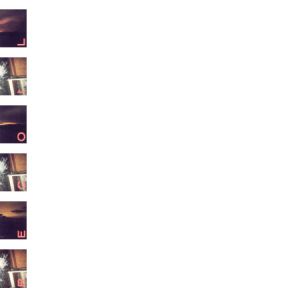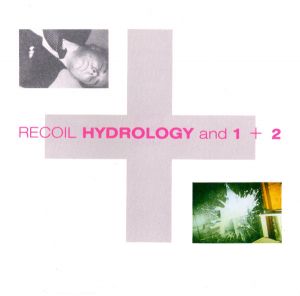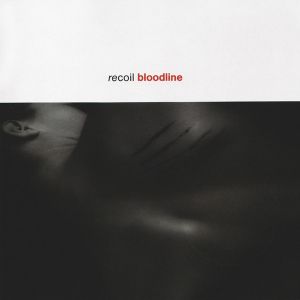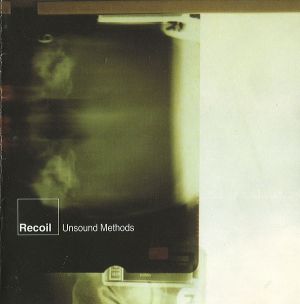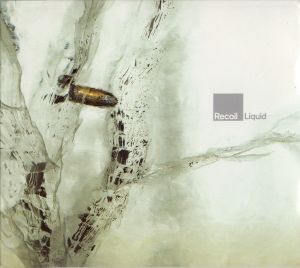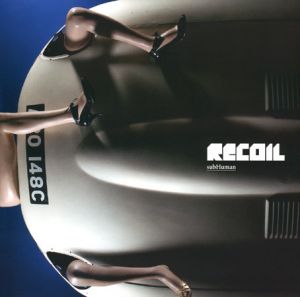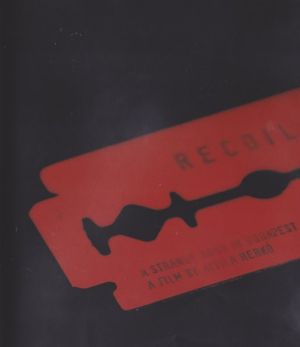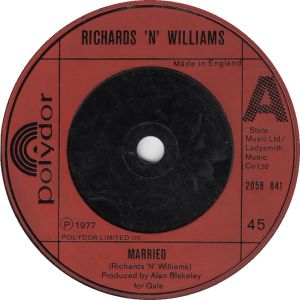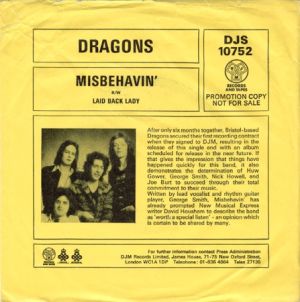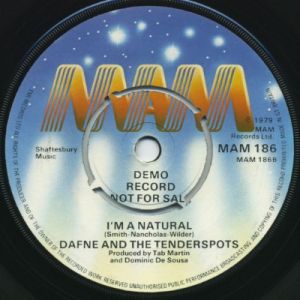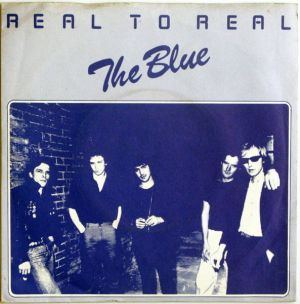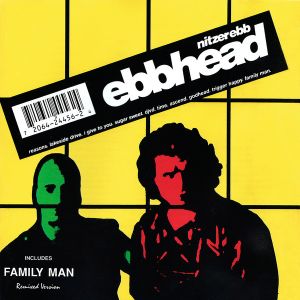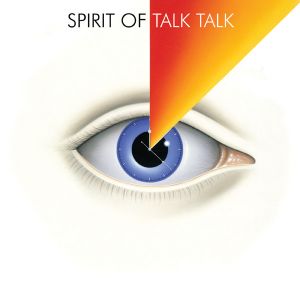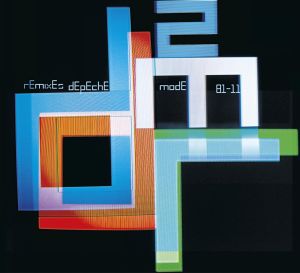List of Recoil sample sources by album
- This article is about the various sample sources used on Recoil songs and official remixes. For sample sources used on Depeche Mode works, see Depeche Mode sample sources. For sample sources used on Martin Gore works, see List of Martin Gore sample sources by album. For sample sources in the live arrangements of Depeche Mode songs as they were performed on the various concert tours undertaken by the group, see List of Depeche Mode live sample sources by tour.
In audio production, sampling refers to the use of a portion (or sample) from a sound within another recording. During Alan Wilder's tenure with the group, Depeche Mode were among the most prolific acts to make use of sampling technology within a traditional pop music format. Following his departure from Depeche Mode in 1995, Wilder would continue to employ sampling as a means to enhance the atmosphere of his music through the Recoil project, including passages of contemporary music, film soundtracks, sample library audio, and samples from his past work with Depeche Mode. The analysis of these sample sources and how they are manipulated is a popular topic of discussion amongst fans of both groups.
| Glossary Terms used in this article |
Information
| Key | ||||
|---|---|---|---|---|
|
|
The sample is confirmed to have been used in the specified song by a past/present member of Depeche Mode, an individual involved in its production, or band archivist Daniel "BRAT" Barassi. | |||
|
|
The sample is independently confirmed to have been used in the specified song. | |||
|
|
The sample is likely to have been used in the specified song but has not yet been confirmed. | |||
|
|
The sample is not yet confirmed to have been used in the specified song. | |||
|
|
The sample is confirmed to not have been used in the specified song. | |||
|
|
It is unclear if the sample was used in the specified song. | |||
This page aims to document all verifiable sound sources for many of the musical parts utilised by Alan Wilder for the Recoil music project in the production of its studio albums, official remixes, live performances, and other works.
Due to the manipulated nature of the samples described in this article, there is unavoidable potential for error or sample misattribution. To ensure accuracy, this article strives to use verified quotes from band members and recording personnel with citations wherever possible, audio examples, and independent research voluntarily contributed by Depeche Mode and Recoil fans across the world. This article serves to provide an interesting document on this topic in a tabular format that is organized, well-researched, and reasonably accurate. Please bear in mind that due to the limited number of relevant quotes for each sample from band members or associates involved in the production of the music described on this page, audio samples that lack official confirmation are not guaranteed to be accurate.
This article differentiates samples by their origin: Self-made samples, which describes any material originally recorded by Depeche Mode or Alan Wilder for the Recoil music project, and Sourced samples, which describe samples which were not originally recorded by either group. In addition to confirmed samples, this article also covers samples that are commonly misreported as having been used but have been directly refuted by a member or associate of Depeche Mode or Recoil.
As ever, if you notice an error, wish to contribute or request the removal of information contained within this article, please feel free to contact us.
Studio albums
1 + 2 (1986)
- Main article: List of Recoil sample sources by album/1 + 2
Hydrology (1988)
- Main article: List of Recoil sample sources by album/Hydrology
Bloodline (1992)
- Main article: List of Recoil sample sources by album/Bloodline
Unsound Methods (1997)
- Main article: List of Recoil sample sources by album/Unsound Methods
Liquid (2000)
- Main article: List of Recoil sample sources by album/Liquid
SubHuman (2007)
- Main article: List of Recoil sample sources by album/SubHuman
Concert films
Other works
Married (1977)
"Married" by Richards 'N' Williams featuring musical input by Alan Wilder is not known to contain samples from any identifiable sources.
Misbehavin' (1977)
Misbehavin' by the Dragons featuring Alan Wilder is not known to contain samples from any identifiable sources.
Disco Hell (1979)
Disco Hell by Dafne and the Tenderspots featuring Alan Wilder is not known to contain samples from any identifiable sources.
The Blue (1980)
The Blue by Real To Real featuring Alan Wilder is not known to contain samples from any identifiable sources.
Ebbhead (1991)
- Main article: List of Recoil sample sources by album/Ebbhead
Capture (2003)
| "Coma Idyllique" The Digital Intervention 2003
| |||||
|---|---|---|---|---|---|
| Sample sources | |||||
| Sample | Source | Status | Notes | Audio | |
| Orchestral elements | Alex North, Jerry Goldsmith, National Philharmonic Orchestra - 2001 (World Premiere Recording) - "Night Terrors" - 1993 |
|
A manipulated section of audio derived from "Night Terrors" by Alex North with Jerry Goldsmith and the National Philharmonic Orchestra is utilised in the outro of "Coma Idyllique". | ||
| Orchestral elements | Béla Bartók, Tibor Ferenc, Hungarian National Philharmonic Orchestra - Bartok: Dance Suite - Four Pieces For Orchestra, Op. 12 - Two Pictures, Op. 10 - IV. Molto Tranquillo - 1992 |
|
A manipulated section of audio derived from a 1988 performance of the fourth movement of Bartók's Dance Suite by the Hungarian National Philharmonic Orchestra conducted by Tibor Ferenc is utilised in the outro of "Coma Idyllique". | ||
| Orchestral elements | Dmitri Shostakovich, Ladislav Slovák, Czecho-Slovak Radio Symphony Orchestra - Symphonies Nos. 5 And 9 - Symphony No. 5 In D Minor, Op. 47 - III. Largo - 1993 |
|
A manipulated section of audio derived from a February 1987 performance of the third movement of Shostakovich's Symphony No. 5 In D Minor, Op. 47 by the Czecho-Slovak Radio Symphony Orchestra conducted by Ladislav Slovák is utilised in the outro of "Coma Idyllique". |
| |
Spirit of Talk Talk (2012)
Calling The Clock (2016)
Calling The Clock by Dede featuring Alan Wilder is not known to contain samples from any identifiable sources.
References
Notes
